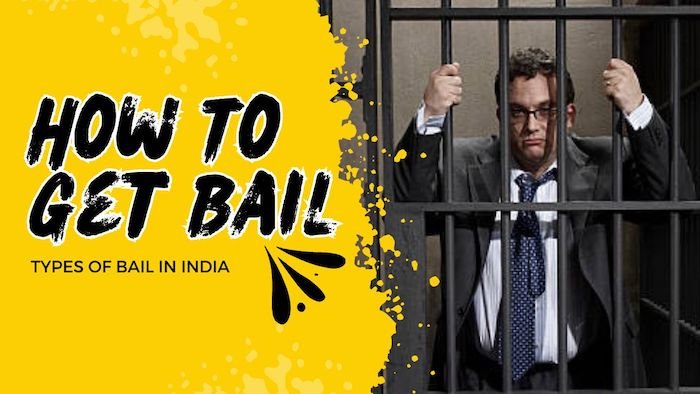At LegalMate, we understand that facing criminal charges can be a frightening experience. One of the most crucial aspects is securing your release while awaiting trial. This article explains the concept of bail in India, its different types, and how to navigate the process.
What Is Bail?
Bail is a legal procedure that allows the release of an accused person from custody before or during their trial. It’s granted on certain conditions, such as providing financial security (bail bond) to ensure their appearance in court.
Understanding Bail in India
Bail is a legal mechanism designed to ensure that an accused person can be released from custody, typically on the condition that they appear in court when required. The concept of bail is rooted in the fundamental right to liberty, ensuring that an individual is not unduly detained while awaiting trial. This article delves into the intricacies of bail, types of bail, the role of bond agents, and how to navigate the bail process in India with the help of LegalMate law firm.
The Importance of Bail
The Indian Constitution guarantees the right to life and personal liberty (Article 21). Bail upholds this right by ensuring an individual isn’t punished before proven guilty. It also allows them to prepare for their defense and participate in the trial process.

Types of Bail in India
The Code of Criminal Procedure (CrPC) outlines various bail provisions. Here’s a breakdown of the common types:
- Regular Bail (Section 436 CrPC): This is the most common type, applicable to bailable offenses (typically less serious crimes). The police or court must release the accused on bail if the offense falls under this category.
- Anticipatory Bail (Section 438 CrPC): This allows someone to seek bail before arrest in anticipation of facing charges for a non-bailable offense (typically more serious crimes). The court considers factors like the severity of the offense, flight risk, and tampering with evidence before granting it.
- Default Bail (Section 167(2) CrPC): If the investigation in a non-bailable offense isn’t completed within a specific period (usually 24-90 days, depending on the offense), the accused becomes entitled to default bail.
- Medical Bail: This allows temporary release due to severe illness or health concerns requiring specialized treatment unavailable in jail.
- Interim Bail: Interim bail in India is temporary bail granted for a short period until a regular or anticipatory bail application is decided. It acts as a provisional measure to ensure the individual’s liberty during the pendency of their bail application.
Understanding Bailable and Non-Bailable Offenses:
The Indian Penal Code (IPC) categorizes offenses as bailable or non-bailable. Here’s a basic explanation:
- Bailable Offenses (e.g., Theft under ₹10,000 IPC Section 379): Bail is a right in these cases.
- Non-Bailable Offenses (e.g., Rape IPC Section 376, Murder IPC Section 302): Bail is granted at the court’s discretion based on specific circumstances.
Examples of Obtaining Bail for Specific Offenses:
- Bail under 376 IPC (Rape): While rape is a non-bailable offense, courts can grant anticipatory bail under exceptional circumstances.
- Bail Under DV Act (Domestic Violence Act): In some cases of domestic violence, courts consider the relationship between the accused and the victim while deciding on bail.
- Bail under 302 IPC (Murder): Murder is a serious offense with a low chance of bail. However, exceptional circumstances like self-defense or aiding suicide might be considered.
- Bail under Section 506 IPC (Criminal Intimidation): Generally bailable, but the court’s discretion applies based on case specifics. The accused may secure bail by demonstrating that they pose no threat to the victim or public.
- Bail under Section 420 IPC (Cheating and Fraud): Courts may grant bail based on the evidence, the nature of cheating, and its impact on the victims. Each case is assessed individually to determine bail eligibility.
- Bail under Section 120B IPC (Criminal Conspiracy): As a non-bailable offence, obtaining bail for criminal conspiracy requires a detailed examination by the court. The court considers the nature of the conspiracy and the involvement of the accused.
- Bail in POCSO (Protection of Children from Sexual Offences Act): POCSO offenses are usually non-bailable, but courts may grant bail under special circumstances.
Anticipatory Bail
Anticipatory bail is a pre-arrest legal process granted under Section 438 of the CrPC. It is sought when an individual anticipates arrest on false or politically motivated charges. The conditions for granting anticipatory bail include:
- Nature and Gravity of the Offence: The court assesses the seriousness of the accusations and the potential impact on society.
- Past Criminal Record: The individual’s past conduct and criminal record are considered. A clean record may favor the grant of anticipatory bail.
- Possibility of Misuse of Bail: The court evaluates whether the accused might misuse their liberty to tamper with evidence, influence witnesses, or flee justice.
Role of Bail Agents and Bond Agents
Bail agents or bond agents play a crucial role in securing bail for the accused. They provide financial guarantees to the court on behalf of the accused, ensuring their compliance with bail conditions. These agents assist in fulfilling legal and procedural requirements for bail, facilitating the release of the accused from custody.
How to Get Bail in India (LegalMate’s Approach):
- Consultation: Our team of experienced criminal lawyers will assess your case and advise you on the best course of action.
- Bail Application: We will prepare a strong bail application, highlighting the relevant legal provisions and presenting arguments that favor your release.
- Court Representation: Our lawyers will represent you effectively in court, presenting evidence and arguing for bail on your behalf.
Contact LegalMate for Trusted Bail Assistance:
Facing criminal charges can be overwhelming. LegalMate Law Firm is here to guide you through the bail process. Our team of top criminal lawyers in India has a proven track record of securing bail for clients across various offence categories.
LegalMate’s Expert Services
At LegalMate, we have a team of top criminal lawyers in India who specialize in securing bail for various offences. Our experts provide comprehensive legal support to navigate the complex bail procedures, ensuring the best possible outcome for our clients. Whether you need anticipatory bail or regular bail, our dedicated team is here to assist you every step of the way.
How to Avoid Jail Time
- Early Legal Consultation: Engage a lawyer as soon as you anticipate legal trouble. Early intervention can significantly impact the outcome of your case.
- Prepare a Strong Defense: Collect evidence and witnesses to support your case. A robust defense strategy is crucial for securing bail and avoiding jail time.
- Comply with Legal Procedures: Ensure all bail conditions and legal requirements are met. Compliance with court orders is essential to maintain your bail status.
For personalized legal advice and to secure bail efficiently, contact LegalMate. Our team is dedicated to providing the best legal solutions to keep you safe from unnecessary detention. Reach out to us for a consultation and let our experts guide you through the bail process.
Are You Looking for Top Criminal Lawyers for Bail in India?
Contact LegalMate at +918934042222
Disclaimer: This article is for informational purposes only and does not constitute legal advice. Consult a qualified lawyer for specific legal guidance.
5 Burning Questions on Getting Out on Bail in India
I just got arrested! Can I get bail?
Whether you can get bail depends on the offense. Minor offenses are typically bailable, meaning you can secure bail easily. For more serious offenses, bail might require court approval, which involves a hearing and specific conditions. It’s crucial to call a lawyer immediately to understand your specific situation and options.
How much will bail cost?
The bail amount varies based on the severity of the offense and your personal background. A lawyer can help estimate the potential bail amount based on your case.
How can I arrange bail money quickly?
There are three main options:
- Personal Funds: If you have the money, you can pay the bail directly to the court.
- Family/Friends: Reach out to family or friends for help raising the bail amount.
- Bail Bonds (consult a lawyer!): In some areas, bail bondsmen can post bail on your behalf for a fee. The legality and operation of bail bonds vary, so it’s essential to consult a lawyer for guidance.
What happens if I miss a court date after getting bail?
Missing a court date is extremely serious. Always make sure to attend all court hearings to avoid these severe consequences.
Do I need a lawyer to get bail?
A lawyer can explain your options, present a strong case for bail, and potentially negotiate a lower bail amount. Their expertise can significantly improve your chances of a successful bail application.
For personalized legal advice and to secure bail efficiently, contact LegalMate. Our team of top criminal lawyers in India is here to assist you every step of the way.






